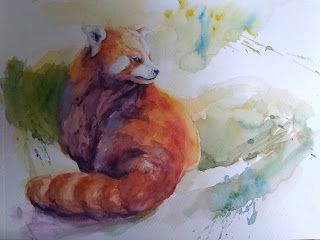Dialogue with Dr. Kincheloe: Historical Cubism
Dear Dr. Kincheloe,
I have encountered your emphasis on multiperspectivism several times, but I am not quite sure whether I understood the essence. I might include some other perspectives strategically as a vehicle to argue deficits of each perspective and assert my own. But I guess this is not what you meant. In addition, I wonder how I can maneuver this cubism as I limited on my subjectivity and won't give equal, or near equal emphasis to those perspectives. Don't I have my own questions and angles even before conducting research? Would you phrase your insight to this dilemma that I feel?
Also, it seems that I am undertaking historiographical research for my term paper, not history itself, strictly speaking. Is it correct?
Best regards,
Kay
------------------
Bricolage comes across multiple levels from theoretical grounds to methodological strategies. For instance, interpreting a phenomenon without social theories will impoverish research and taking perspectives from critical theory into the interpretation brings multiperspectivism. Also, as seen in research on McDonalds, researchers need to be 'informed' from multiple perspectives of corporations, managers, consumers, and critical thoughts in order to result in more rigorous research. I, as researcher, don't have to represent those perpsectives, but need to be informed to put my own perspectives.
Historiography is 1) historical study and 2) study of schools of thoughts to see how each school interpret history and society.
I have encountered your emphasis on multiperspectivism several times, but I am not quite sure whether I understood the essence. I might include some other perspectives strategically as a vehicle to argue deficits of each perspective and assert my own. But I guess this is not what you meant. In addition, I wonder how I can maneuver this cubism as I limited on my subjectivity and won't give equal, or near equal emphasis to those perspectives. Don't I have my own questions and angles even before conducting research? Would you phrase your insight to this dilemma that I feel?
Also, it seems that I am undertaking historiographical research for my term paper, not history itself, strictly speaking. Is it correct?
Best regards,
Kay
------------------
Bricolage comes across multiple levels from theoretical grounds to methodological strategies. For instance, interpreting a phenomenon without social theories will impoverish research and taking perspectives from critical theory into the interpretation brings multiperspectivism. Also, as seen in research on McDonalds, researchers need to be 'informed' from multiple perspectives of corporations, managers, consumers, and critical thoughts in order to result in more rigorous research. I, as researcher, don't have to represent those perpsectives, but need to be informed to put my own perspectives.
Historiography is 1) historical study and 2) study of schools of thoughts to see how each school interpret history and society.


Comments